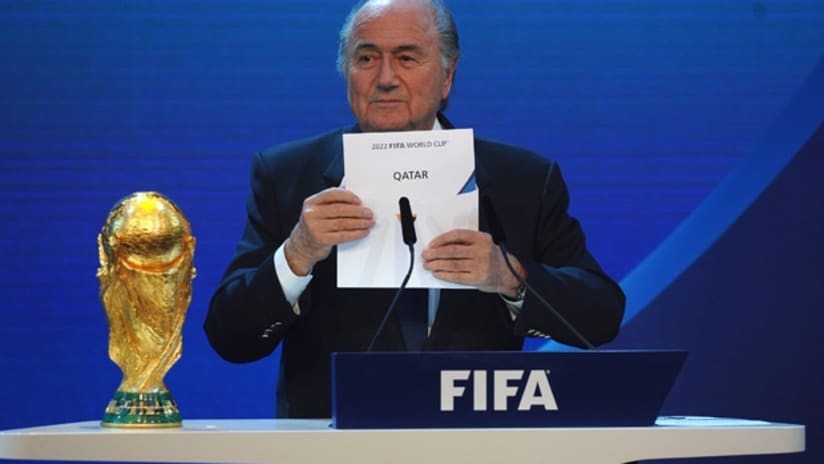As FIFA edges towards a momentous decision to move the 2022 World Cup to wintertime to dodge Qatar's scalding summer heat, one of Australian soccer's most powerful figures has challenged the sport's governing body to refund the millions of dollars his nation spent on its failed 2022 bid.
Frank Lowy, the billionaire shopping-mall magnate who serves as chairman of Football Federation Australia, made waves across the globe on Monday as he urged FIFA to repay Australia and the rest of the unsuccessful bidders for 2022 in light of the event's potential schedule change.
“Australia, like the other bidding nations, was required by FIFA’s own rules to pitch for a World Cup in the June and July window,” said Lowy in a statement released by FFA. “Changing the dates is tantamount to changing the rules after the contest is over. If that happens, compensation should be paid to those nations that invested many millions, and national prestige, in bidding for a summer event.”
According to a report on FoxSports Australia, the Australian 2022 bid spent A$43 million – about $40 million in US currency – but finished fifth in the final vote behind Qatar, the United States, South Korea and Japan. The entire process is currently under investigation by FIFA's ethics committee.
FIFA general secretary Jerome Valcke has already said FIFA wouldn't be inclined to reimburse Australia, or any of the other losing bids, according to several reports.
FIFA's Executive Committee is set to gather next month to discuss president Sepp Blatter's recommendation that Qatar 2022 be moved to a November to January window in order to avoid the desert nation's triple-digit summer temperatures. It's a controversial idea which has many leagues, broadcasters and federations up in arms.
“FIFA has an opportunity now to make the best of a bad situation by embarking on a transparent and orderly approach, unlike the process that led to the original flawed decision in December 2010,” Lowy added. “Better to let the independent investigative process run its natural course and then, with those issues settled, make a clear-eyed assessment about rescheduling and its consequences.
“FIFA champions the notion of ‘Fair Play’ and that principle should apply to the decisions it makes in the coming months.”










